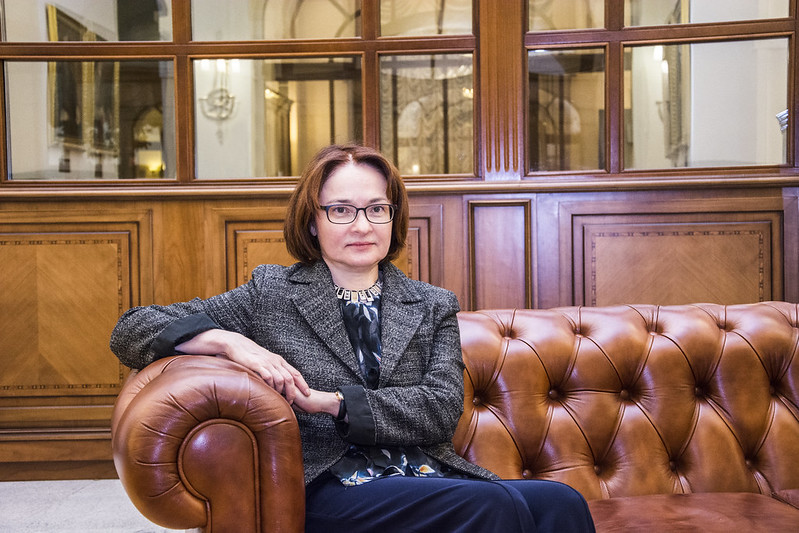The paradoxes of Russian finances in support of Putin
Inflation in the country remains around 8-9%, far from the 4% target set by the President of the Central Bank of Russia, Elvira Nabiullina. But precisely by showing its limits, the economist allows a rationalisation that would otherwise risk blowing up the Russian war machine itself from within.
Moscow (AsiaNews) - Attempts by the President of the Central Bank of Russia, Elvira Nabiullina, to combat ever-increasing inflation are proving to be a failure, as one might have expected from the involvement of the entire Russian economy in the war. The paradox is that it is precisely these failures that provide President Vladimir Putin with guidelines for organising war actions, indicating which limits he must not exceed.
Nabiullina's goal is not to exceed the inflation threshold of 4% per annum, and her competence is not only questioned within Russia, but also by international experts. In Politico 's rankings for 2023, she is given the title of the main disrupter, the economic 'destroyer', in the sense of the 'main technocrat capable of making Putin's war machine work', creating an unprecedented dynamism of liveliness in the world of Russian finances, accompanying war investments.
Inflation flew above 11% in 2022, after the start of the special military operation, and attempts were made in vain to keep it at 6-7% in 2023 and to bring it down to the desired level in the current year, but so far these goals have not been achieved, remaining at around 8-9%.
The forecast was slightly corrected, indicating a target of 4.3-4.8% for the end of the year, but a further upward correction is expected shortly. According to the more pessimistic experts, inflation could even spike to 15-20%.
The current interest rate in turn is already very high (16%), and could be raised even to 17-18%, trying to reach less and less realistic targets even until 2026-2027. Logic seems to be trampled underfoot in this maelstrom, whereby Putin's economists continue to fail in their aims and repeat corrective measures that yield no results, without being reprimanded or replaced, as if everything had to go like this. Nabiullina, after all, has been at the head of the Central Bank since 2013, and has already accumulated considerable experience of victories and defeats in this seesaw of the Russian economy.
After the financial collapse of 1998, consumer prices soared for a couple of years, then slowed down at the beginning of the Putin era, whose first decade was stable with a rate of around 10 per cent of inflation, falling to 6 per cent in 2011-2013.
The beginning of the conflict with Ukraine in 2014, and the first waves of sanctions against Russia, led to a significant drop in the price of oil; the ruble began to fall with serious damage on imports and an increase in inflation to 12% per year.
Against this backdrop, the new president of the Bank prepared to overcome the difficulties within a short period of time, not realising the slope on which Russia was heading.
In the five-year period 2016-2020, Nabiullina managed to maintain control over the 'magic' figure of 4%, but since 2021 everything has gone out of kilter with the pandemic, and then the war.
The gigantic investments in the war industry (+5.2% in the first four months of 2024 alone) are struggling to be reflected in consumption and goods necessary for civilian life, creating an internal stagnation effect. On the basis of banking indications, Putin and Finance Minister Anton Siluanov are orienting themselves in the arrangement of military spending, trying not to fall below thresholds that would make life prohibitive for society.
By showing the limits, in short, Nabiullina allows for a rationalisation that would otherwise risk blowing up the war machine itself from within; the more the economists fail, the less the military will fail, in a veritable 'reverse economy' in function only of Russia's permanent state of war, against itself and all its enemies.
Photo: Flickr / Robert Yusupov







.png)










